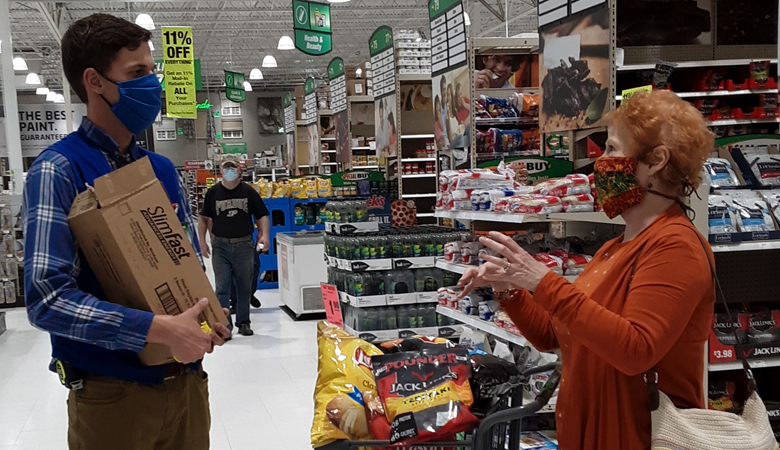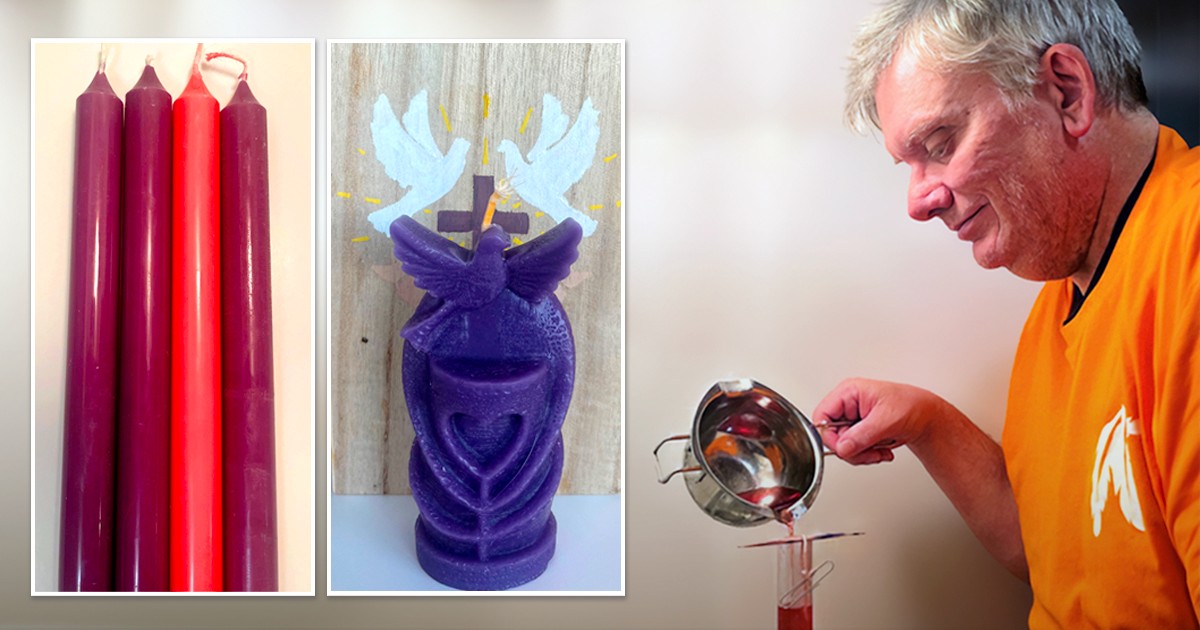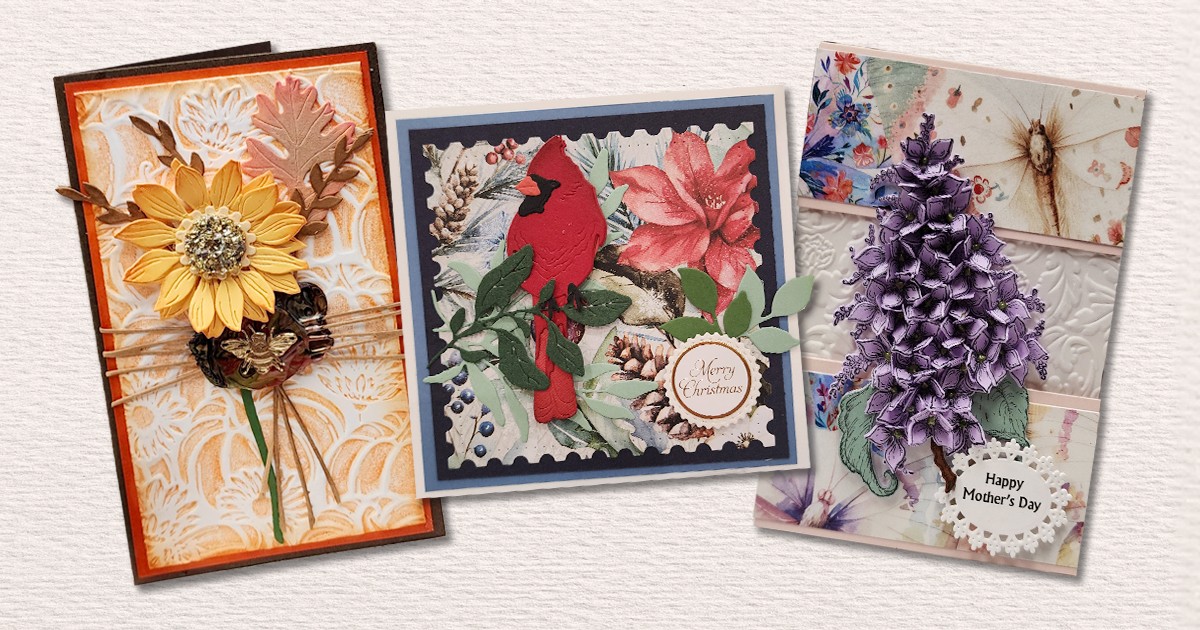"If you’re up before 5:30, can you please wake me?” I asked my husband, Kevin. I didn’t want to miss the highlight of my week the next morning. Every Tuesday during the COVID-19 crisis, our local market allowed seniors to shop an hour before the store opened to the public. I knew the following day I’d see lots of faces, even though they’d be smiling from behind masks two metres away.
Social networking online was fun. But I craved face-to-face conversations. before that I’d need to work from home, I smiled and replied, “Sure, I understand.” Not having to commute would give me all that extra time to write, finish home projects and spend more time with Kevin. I was elated. Besides, the medical experts predicted it would only take 15 days before we could return to work and our normal lives.
By the fifth week of the pandemic, I’d written 20 stories and cleaned out 10 messy drawers. As to spending more time with my husband … well, I discovered that too much togetherness—even in a healthy marriage like ours—can lead to unhealthy attitudes. I found myself apologizing to Kevin every day for snapping at him over minor irritations. The opera music he played all day grated on my nerves. He left the kitchen a mess when he cooked. He didn’t comb his hair often enough to suit me.
“Hi!”
Even after I apologized for my lack of kindness and Kevin forgave me, I still felt like crying.
Gregarious by nature, I often told people, “I can talk to anyone on any subject, whether I know anything about it or not.” Now, I had one person—well, four if you count the cats—to talk to. I felt like I was being punished.
The sense of isolation and loneliness created a huge hole in my heart. I missed my friends, co-workers and fellow church members. Depression threatened to steal my joie de vivre.
Those weekly sunrise trips to the market helped me cope.
I said, “Hi!” to everyone I came across, friends and strangers alike. I made eye contact with each one. You can tell a lot about someone’s heart from the mirror of their eyes. Most said, “I’m scared” or “I’m unsure about the future.” A few said, “Thanks for noticing me. I’ve felt so invisible during this strange, scary time.” I could relate.
People sometimes looked at me funny when I raised my voice to greet a friend halfway down the candy aisle, but I didn’t care. I was having too much fun.
And afterward, I felt less sullen. I even treated Kevin with more patience, since my emotional gas tank was now brimming over.
Doing It God’s Way
It was during those trips to purchase groceries that I rediscovered my joy—bubbling over, barely contained joy—almost by accident.
One morning as I passed a lady in the produce aisle, I said, “I like your purple purse. It’s perfect for you.” Her eyes crinkled at the corners as she smiled and gave me a muffled, “Thank you.”
Immediately, my murky mood brightened a little. As I turned a corner and a man allowed me to pass in front of his cart, I said, “How wonderful to meet a true gentleman!” His friendly nod eased a bit of my loneliness.
When I had trouble at the self-checkout lane, a cheerful employee helped me scan a box of cat litter. “You’re always so kind,” I said. “Thanks for your help!”
Each time I gave someone a compliment or thanked them for a kindness, the dark feelings lifted some more. By the time I walked out the door to the parking lot, I was in my usual sunny mood. I’d forgotten about my problems and was focused on giving others a serving of encouragement. By giving away what I thought I’d lost—joy—my own feelings of sadness vanished.
We’re all in this together, I thought. I’m not the only one suffering. Everyone here—everyone in the world—is fighting the same insecurity I’m experiencing. This isn’t about me. It’s about helping my neighbours stay healthy. Both physically and mentally.
Without being conscious of it, I was obeying God when He told His followers, “Rather, in humility value others above yourselves, not looking to your own interests but each of you to the interests of the others” (Philippians 2:3-4).
No wonder my step bounced and my heart was lighter. I’d grown up a little. I’d learned to cope by doing life God’s way.
Social networking online was fun. But I craved face-to-face conversations. before that I’d need to work from home, I smiled and replied, “Sure, I understand.” Not having to commute would give me all that extra time to write, finish home projects and spend more time with Kevin. I was elated. Besides, the medical experts predicted it would only take 15 days before we could return to work and our normal lives.
By the fifth week of the pandemic, I’d written 20 stories and cleaned out 10 messy drawers. As to spending more time with my husband … well, I discovered that too much togetherness—even in a healthy marriage like ours—can lead to unhealthy attitudes. I found myself apologizing to Kevin every day for snapping at him over minor irritations. The opera music he played all day grated on my nerves. He left the kitchen a mess when he cooked. He didn’t comb his hair often enough to suit me.
“Hi!”
Even after I apologized for my lack of kindness and Kevin forgave me, I still felt like crying.
Gregarious by nature, I often told people, “I can talk to anyone on any subject, whether I know anything about it or not.” Now, I had one person—well, four if you count the cats—to talk to. I felt like I was being punished.
The sense of isolation and loneliness created a huge hole in my heart. I missed my friends, co-workers and fellow church members. Depression threatened to steal my joie de vivre.
Those weekly sunrise trips to the market helped me cope.
I said, “Hi!” to everyone I came across, friends and strangers alike. I made eye contact with each one. You can tell a lot about someone’s heart from the mirror of their eyes. Most said, “I’m scared” or “I’m unsure about the future.” A few said, “Thanks for noticing me. I’ve felt so invisible during this strange, scary time.” I could relate.
People sometimes looked at me funny when I raised my voice to greet a friend halfway down the candy aisle, but I didn’t care. I was having too much fun.
And afterward, I felt less sullen. I even treated Kevin with more patience, since my emotional gas tank was now brimming over.
Doing It God’s Way
It was during those trips to purchase groceries that I rediscovered my joy—bubbling over, barely contained joy—almost by accident.
One morning as I passed a lady in the produce aisle, I said, “I like your purple purse. It’s perfect for you.” Her eyes crinkled at the corners as she smiled and gave me a muffled, “Thank you.”
Immediately, my murky mood brightened a little. As I turned a corner and a man allowed me to pass in front of his cart, I said, “How wonderful to meet a true gentleman!” His friendly nod eased a bit of my loneliness.
When I had trouble at the self-checkout lane, a cheerful employee helped me scan a box of cat litter. “You’re always so kind,” I said. “Thanks for your help!”
Each time I gave someone a compliment or thanked them for a kindness, the dark feelings lifted some more. By the time I walked out the door to the parking lot, I was in my usual sunny mood. I’d forgotten about my problems and was focused on giving others a serving of encouragement. By giving away what I thought I’d lost—joy—my own feelings of sadness vanished.
We’re all in this together, I thought. I’m not the only one suffering. Everyone here—everyone in the world—is fighting the same insecurity I’m experiencing. This isn’t about me. It’s about helping my neighbours stay healthy. Both physically and mentally.
Without being conscious of it, I was obeying God when He told His followers, “Rather, in humility value others above yourselves, not looking to your own interests but each of you to the interests of the others” (Philippians 2:3-4).
No wonder my step bounced and my heart was lighter. I’d grown up a little. I’d learned to cope by doing life God’s way.










Comment
On Wednesday, March 24, 2021, Marian Jedynak said:
On Friday, February 26, 2021, Juanita Dueck said:
On Thursday, August 6, 2020, Karen Lange said:
On Thursday, August 6, 2020, Joyce Ackley said:
Leave a Comment